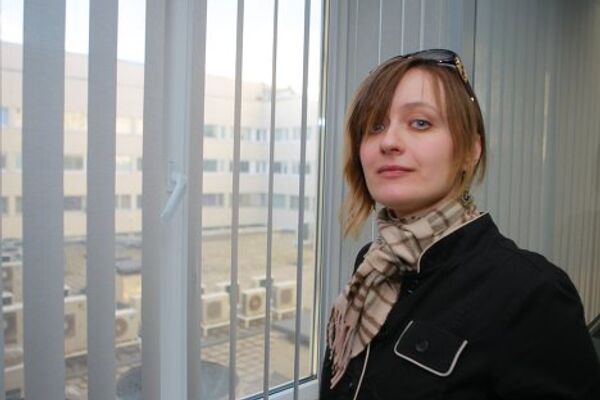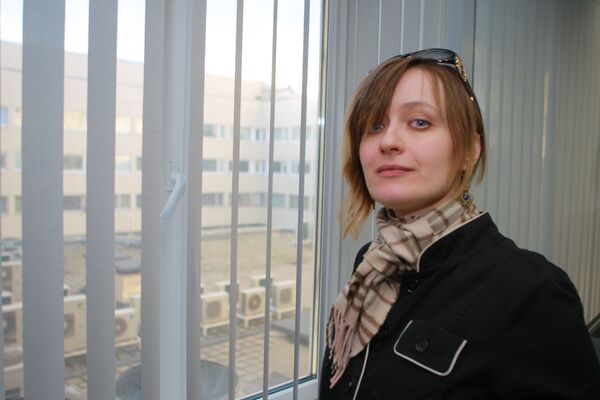There is a kind of sad poetry to Moscow’s working class neighborhoods. The box-like Khrushchev-era buildings that seem like gigantic children’s toys rather than real housing, the hilariously poor grammar on thousands of tacked up advertisements, the cracked pavement, the whispering trees, and the stars seen overhead, far from the brilliantly lit city center.
There is also loneliness. Especially as far as law enforcement is concerned. Quite frankly, they never seem to be at the right place in the right time. And even when they are – it often seems they get there too late.

On the phone this morning, my policeman friend was livid in the face of accusations that Moscow’s police are failing to do their jobs. “They’re saying the police are ‘protecting the bastards.’ They don’t know the first thing about what our jobs are like.”
He was speaking about the riot that swept through the Biryulyovo neighborhood in southern Moscow – leaving many people, including police officers, injured. According to residents, ethnic tension has been brewing in Biryulyovo quite some time. The straw that broke the camel’s back was the murder of Yegor Shcherbakov – a young man walking back from a bowling alley with his girlfriend on the evening of October 10. According to Shcherbakov’s girlfriend, a man who looked like he could be from the North Caucasus harassed her in the street. When Shcherbakov defended her, he was fatally stabbed in the heart, she said.
The murder was swiftly co-opted by nationalist forces and very soon Biryulyovo was out of control. People identified as “foreign” were attacked, cars set on fire, bottles were thrown at riot police, and a shopping center and a vegetable market were under siege.
In Moscow, emergency police protocols were activated – with the capital’s entire force placed on high alert. On TV, residents screamed “Where are you when they’re stabbing us?” at riot policemen who seemed genuinely spooked at times. “We’re Russian just like you! Why are you protecting them?” Others yelled.
Of course, the issue of who “they” are is murky at best. “We’re protecting the people,” my policeman friend told me wearily the morning after the riots. “And it’s rare that we’re thanked for it.”
Off-the-record, Moscow’s policemen frequently complain about being overworked and overstretched. Official statistics don’t necessarily confirm this – but statistics can also be misleading. According to my friend and colleague Mark Galeotti, calculating the number of police officers via the official census figure of 11.5 million in the city would lead you to believe that Moscow has about 426 officers per 100,000 residents, a “respectable” figure. Yet the real amount of people living in Moscow is probably much higher – with the high end estimate being around 17 million. Even if that figure is inflated, as Galeotti suspects it is, we are still left with way too few police officers in a sprawling, frequently lawless city.
It’s true that beefing up the police force alone won’t do much to solve problems such as ethnic tension and violence. Corruption, bureaucratic inefficiency, the lack of a coherent approach to migration, disenfranchisement among the working classes, growing racism – these are all parts of the complex puzzle here. And Moscow doesn’t just need more cops – it needs good cops, qualified professionals who can do their jobs.
In most working class neighborhoods in Moscow, the cops are mistrusted and perceived as dangerous at best. I should know, because I live in a working class neighborhood here. Most of my neighbors – both local and migrant alike – appear to despise the police. What’s worse is that my neighbors also appear to hate each other – fueling an atmosphere of isolation and fear.
In “Terminator 2: Judgment Day,” there is an ironic moment when a murderous robot who has taken on the appearance of a policeman arrives at the neighborhood of his intended victim. “To Protect and Serve” says the motto on the door of the police car. I remember that moment frequently whenever I encounter the police late in the evening, wondering if they’re friendly or not-so-friendly.
Meanwhile, it has been dispiriting to read hasty and nasty categorizations of Moscow’s poorer neighborhoods in the wake of the riot in Biryulyovo. I’m not saying this because I approve of the riots. I’m saying it because real people live there – many of them on the margins of society, with scant social guarantees. That goes for both Russians and non-Russians, by the way.
Trendwatching in Russia is an extreme sport: if you’re not dodging champagne corks at weddings, you’re busy avoiding getting trampled by spike heels on public transportation. Thankfully, due to an amazing combination of masochism and bravado, I will do it for you while you read all about it from the safety of your living room.
Natalia Antonova is the acting editor-in-chief of The Moscow News. She also works as a playwright – her work has been featured at the Lyubimovka Festival in Moscow and Gogolfest in Kiev, Ukraine. She was born in Ukraine, but spent most of her life in the United States. She graduated from Duke University, where she majored in English and Slavic Literature. Before coming to Moscow, she worked in Dubai, UAE and Amman, Jordan. Her writing has been featured in The Guardian, Foreign Policy, Russia Profile, AlterNet, et al.
Trendwatcher: Killing Irony with Ivan the Terrible and an Orthodox Activist
Trendwatcher: In Russia, Death Needs to ‘Sell Out’
Trendwatcher: Pussy Riot and Prison Reform
Trendwatcher: Nerds Gone Wild: Argument Over Philosopher Kant Ends in Shooting
Trendwatcher: Moscow’s Aging Voters Defeat Its Apathetic Youth
Trendwatcher: Glamorous Fraudsters and Debt Suicides
Trendwatcher: The Scandalous Truth About Russian Men
Trendwatcher: Of Russian Tourists, Egyptian Violence, and Fate
Trendwatcher: Moscow’s Migrant Problem – And Lack of Community

